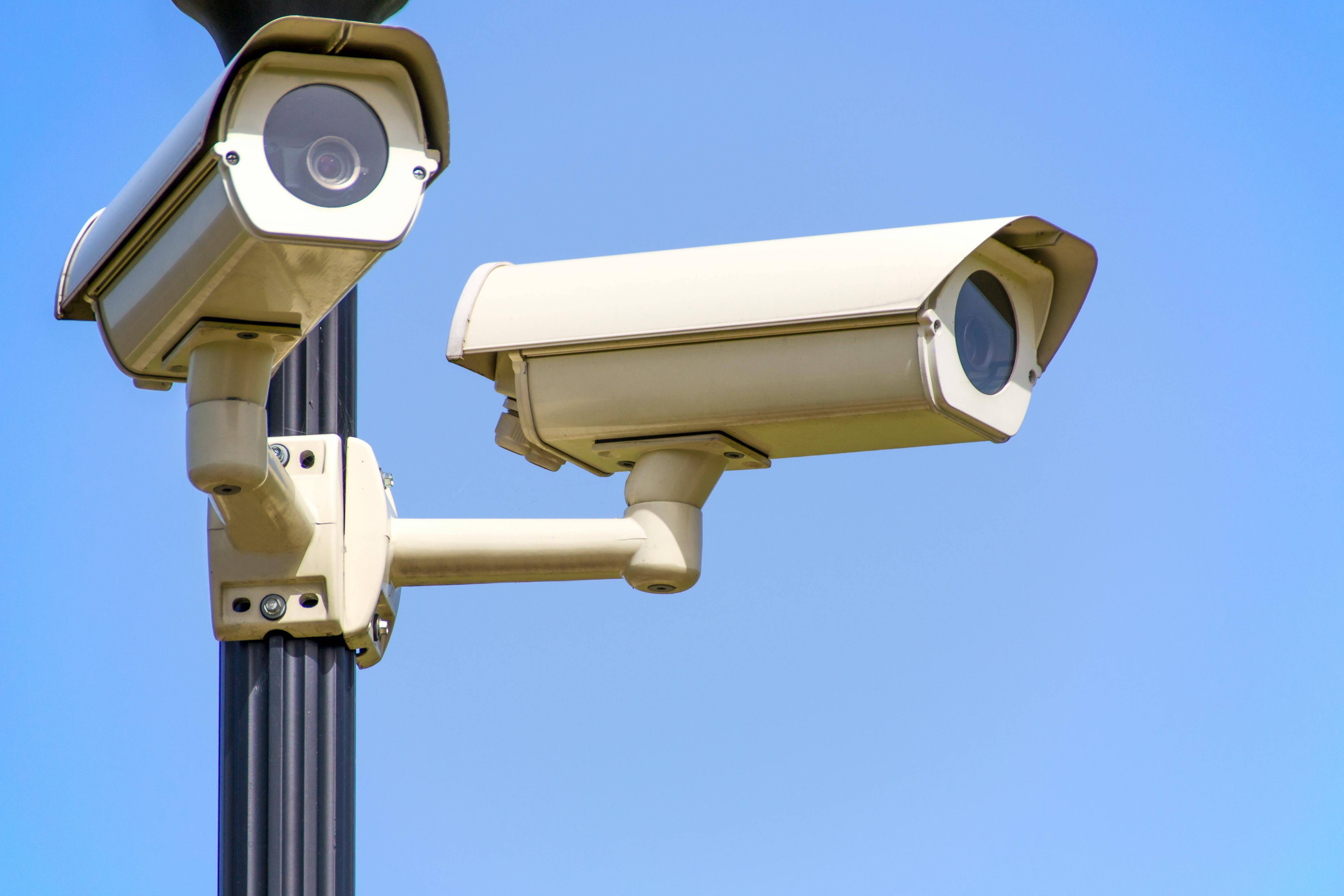How Trucking Fleets Finance New Rigs The trucking industry keeps America moving — but growing a...

Business Security Equipment Financing & Leasing provides businesses with the ability to acquire essential security systems, such as surveillance cameras, access control systems, alarms, and more, without paying the full cost upfront. Whether you're a small business owner or a large enterprise, securing your premises is crucial, and financing or leasing can help spread the cost over time.
Why Finance or Lease Business Security Equipment?
-
Affordable Access to Advanced Technology:
- High-end security systems, such as advanced surveillance cameras, biometric access controls, and alarm systems, can be expensive. Financing or leasing allows businesses to access these systems without the need for a large upfront payment.
-
Improve Cash Flow:
- Spreading out payments over a period of time allows businesses to maintain cash flow for other operational needs, avoiding a large one-time expense.
-
Upgrade Flexibility:
- Leasing options often allow businesses to upgrade to newer, more advanced security systems as technology improves, ensuring that security remains up-to-date.
-
Tax Benefits:
- Depending on the leasing or financing structure, businesses may be able to deduct lease payments as an operating expense, providing tax benefits.
-
Immediate Protection:
- Financing or leasing allows businesses to immediately install and start using essential security systems, enhancing safety and preventing potential losses due to theft or security breaches.
Types of Security Equipment Available for Financing & Leasing
-
Surveillance Cameras (CCTV):
- Security cameras are essential for monitoring activities in and around the business premises. Financing helps businesses acquire high-resolution cameras, night vision capabilities, and motion detection systems.
-
Access Control Systems:
- These systems control and monitor who enters and exits a building or restricted areas. This includes keycards, biometric scanners (fingerprints or facial recognition), and intercom systems.
-
Alarm Systems:
- Burglar and fire alarms are critical for notifying businesses of unauthorized entry or emergencies. Leasing and financing options make it easier to install comprehensive alarm systems that include motion detectors, glass-break sensors, and 24/7 monitoring.
-
Fire Safety Systems:
- Sprinkler systems, fire extinguishers, and smoke detectors can also be financed, ensuring that businesses comply with safety regulations without upfront costs.
-
Security Gates and Barriers:
- Physical security solutions, such as automated gates, turnstiles, and barriers, can be financed or leased, improving the perimeter security of a facility.
-
Intrusion Detection Systems:
- These systems monitor for unauthorized access, alerting security personnel in real-time if a breach occurs. Financing makes it easier to install these systems, especially for larger business premises.
Types of Security Equipment Financing & Leasing
-
Equipment Financing (Loans):
- This involves borrowing money from a lender to purchase the security equipment outright. The business repays the loan over time with interest, and once the loan is paid off, the business owns the equipment.
-
Operating Lease:
- In an operating lease, the business rents the security equipment for a fixed term, with the option to upgrade, renew the lease, or return the equipment at the end of the lease period. This is ideal for businesses that want the latest technology without ownership obligations.
-
Capital Lease (Lease-to-Own):
- A capital lease allows the business to lease the equipment with the intention of owning it at the end of the lease term. This option usually results in higher monthly payments compared to an operating lease but leads to ownership.
-
Vendor Financing:
- Some security equipment vendors offer in-house financing options, which can include special incentives like lower interest rates or deferred payment options. These vendor programs make it easier for businesses to acquire necessary security systems directly from the supplier.
-
Sale-Leaseback:
- If a business already owns security equipment but needs cash, they can sell the equipment to a leasing company and lease it back. This allows businesses to free up capital while continuing to use the equipment.
-
Line of Credit:
- Some businesses choose to use a business line of credit to finance security equipment. This option offers flexibility, allowing businesses to draw funds as needed for various security upgrades or new installations.
Advantages of Financing & Leasing Business Security Equipment
-
Preserve Working Capital:
- Financing and leasing allow businesses to preserve working capital for other critical expenses, such as payroll, inventory, or marketing, while still improving their security.
-
Predictable Payments:
- Both financing and leasing offer predictable, fixed monthly payments, making it easier to budget and manage cash flow.
-
Access to the Latest Technology:
- Leasing often comes with the benefit of upgrading to the latest security equipment when the lease term expires, ensuring that businesses always have access to cutting-edge technology.
-
Avoid Obsolescence:
- Security technology evolves rapidly. Leasing allows businesses to upgrade to the latest equipment without being stuck with outdated technology.
-
Maintenance and Service Included:
- Some lease agreements include maintenance and service, ensuring that security equipment is always functioning properly and minimizing downtime.
-
Quick Installation:
- Financing options often allow for immediate installation, meaning businesses can enhance their security systems quickly without having to wait until they have sufficient capital.
Who Can Benefit from Security Equipment Financing & Leasing?
-
Small and Medium-Sized Businesses (SMBs):
- Financing and leasing help SMBs implement high-quality security solutions without significant capital outlay, ensuring their premises are protected from theft or damage.
-
Retail Stores:
- Retailers can benefit from security cameras, alarms, and loss prevention systems to reduce shrinkage and deter theft. Financing provides the ability to install comprehensive security systems without upfront costs.
-
Warehouses and Industrial Facilities:
- These businesses often need robust security measures, including access control and surveillance, to protect valuable assets and machinery. Financing allows them to secure large facilities more effectively.
-
Hospitality and Hotels:
- Hotels require security systems like keycard access control and surveillance cameras to ensure guest safety. Leasing options provide flexibility to upgrade security as needed.
-
Schools and Educational Institutions:
- Schools often need extensive security systems, including surveillance cameras, access control, and alarms. Leasing makes it easier to install these systems while working within budget constraints.
-
Corporate Offices:
- Protecting intellectual property, sensitive data, and valuable equipment is crucial for businesses of all sizes. Financing or leasing enables corporate offices to implement comprehensive security systems without diverting funds from other priorities.
-
Healthcare Facilities:
- Hospitals and clinics must safeguard patient data, expensive equipment, and ensure staff safety. Financing or leasing provides a cost-effective way to implement necessary security systems.
How to Qualify for Security Equipment Financing & Leasing
-
Creditworthiness:
- Lenders will assess the business’s credit score, financial history, and cash flow. Strong credit and stable financials increase the likelihood of approval and favorable terms.
-
Business Revenue:
- Lenders often look for consistent or growing business revenue to ensure the business can make regular payments.
-
Down Payment:
- Some financing options may require a down payment, typically 10-20% of the equipment’s cost, depending on the lender and the business’s credit profile.
-
Vendor Relationships:
- Partnering with security equipment vendors that offer financing can improve your chances of securing competitive financing or leasing terms, especially if the vendor has in-house financing options.
-
Equipment Type and Value:
- The type and value of the security equipment may affect the loan or lease terms. Higher-value equipment may qualify for longer payment terms.
Steps to Secure Security Equipment Financing or Leasing
-
Assess Security Needs:
- Determine the type and scope of security equipment required, such as cameras, alarms, or access control systems. Get quotes from security equipment vendors.
-
Research Financing Providers:
- Compare financing and leasing options from banks, online lenders, leasing companies, and equipment vendors. Look for interest rates, terms, and any additional fees or services included (e.g., maintenance or insurance).
-
Prepare Financial Documents:
- Gather financial documents such as income statements, balance sheets, and tax returns to demonstrate your business’s financial stability.
-
Submit an Application:
- Apply for financing or leasing through the chosen provider, either directly or via the equipment vendor, and submit the necessary financial documentation.
-
Review the Agreement:
- Carefully review the terms of the financing or lease, including interest rates, payment schedules, and any options for upgrading or purchasing the equipment at the end of the term.
-
Finalize the Agreement and Installation:
- Once approved, finalize the agreement and arrange for the installation of the security equipment.
Conclusion
Financing and leasing business security equipment provide businesses with a cost-effective solution to enhance security without a large upfront investment. By spreading out payments and accessing the latest technology, companies can secure their premises, protect assets, and ensure the safety of employees and customers. Whether it's surveillance cameras, alarms, or access control systems, there are a variety of flexible financing and leasing options to meet every business's needs.



